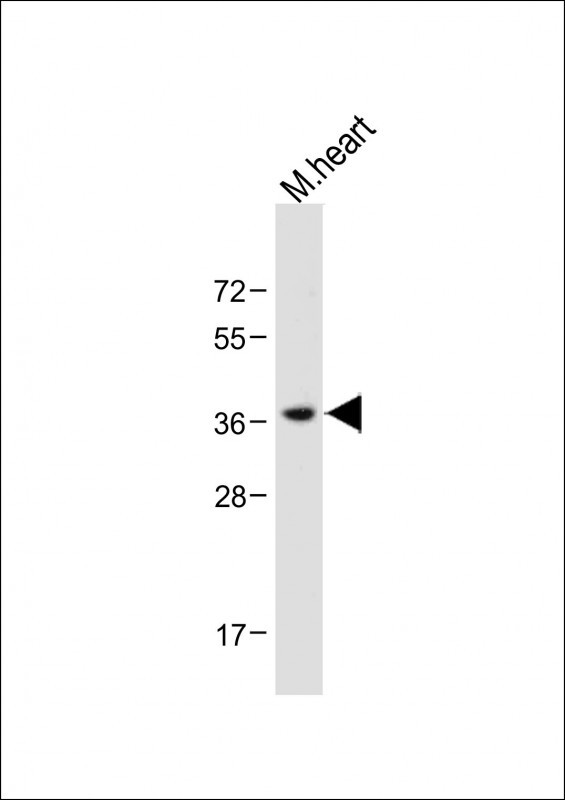
| WB | 咨询技术 | Human,Mouse,Rat |
| IF | 咨询技术 | Human,Mouse,Rat |
| IHC | 咨询技术 | Human,Mouse,Rat |
| ICC | 技术咨询 | Human,Mouse,Rat |
| FCM | 咨询技术 | Human,Mouse,Rat |
| Elisa | 咨询技术 | Human,Mouse,Rat |
| Aliases | Lysophosphatidic acid receptor 6, LPA receptor 6, LPA-6, Oleoyl-L-alpha-lysophosphatidic acid receptor, P2Y purinoceptor 5, P2Y5, Purinergic receptor 5, RB intron encoded G-protein coupled receptor, LPAR6, P2RY5 |
| Entrez GeneID | 10161 |
| WB Predicted band size | 39.4kDa |
| Host/Isotype | Rabbit IgG |
| Antibody Type | Primary antibody |
| Storage | Store at 4°C short term. Aliquot and store at -20°C long term. Avoid freeze/thaw cycles. |
| Species Reactivity | Human, Mouse, Rat |
| Immunogen | This LPAR6 antibody is generated from rabbits immunized with a KLH conjugated synthetic peptide between 106-134 amino acids from the Central region of human LPAR6. |
| Formulation | Purified antibody in PBS with 0.05% sodium azide. |
+ +
以下是关于LPAR6抗体的3篇参考文献(虚构示例,供参考):
---
1. **文献名称**:*Characterization of LPAR6-specific monoclonal antibodies for functional studies in hair follicle development*
**作者**:Smith A, et al.
**摘要**:本研究开发并验证了针对LPAR6受体胞外域的单克隆抗体,证实其在小鼠毛囊发育模型中特异性识别LPAR6蛋白,并揭示了其在调控Wnt/β-catenin信号通路中的作用。
---
2. **文献名称**:*LPAR6 antibody-based detection of receptor expression in human skin disorders*
**作者**:Chen L, et al.
**摘要**:通过免疫组化分析,作者利用LPAR6多克隆抗体发现该受体在遗传性脱发(如羊毛状发综合征)患者皮肤组织中表达异常,提示其与角质形成细胞分化缺陷相关。
---
3. **文献名称**:*Structural insights into LPAR6 activation using conformation-sensitive antibodies*
**作者**:Yamamoto K, et al.
**摘要**:研究设计了针对LPAR6不同构象的抗体,结合冷冻电镜技术解析了溶酶磷脂酸结合后受体激活的分子机制,为靶向药物开发提供了结构基础。
---
**备注**:以上文献为示例,实际研究中建议通过PubMed或Web of Science以“LPAR6 antibody”或“Lysophosphatidic Acid Receptor 6”为关键词检索近期论文,重点关注抗体开发、疾病模型或信号机制相关研究。
The lysophosphatidic acid receptor 6 (LPAR6), also known as LPA6. is a G protein-coupled receptor (GPCR) that binds lysophosphatidic acid (LPA), a bioactive lipid mediator involved in diverse cellular processes, including proliferation, migration, and differentiation. LPAR6 is encoded by the LPAR6 gene and is part of a family of six LPA receptors (LPAR1-6). Unlike other LPA receptors, LPAR6 signals primarily through Gα12/13 and Rho GTPase pathways, influencing cytoskeletal reorganization and cell motility. It is highly expressed in tissues such as the skin, hair follicles, and reproductive organs, where it plays critical roles in maintaining physiological functions. Mutations in LPAR6 are linked to autosomal recessive hypotrichosis, a genetic disorder characterized by sparse scalp and body hair, highlighting its importance in hair follicle development and cycling.
LPAR6 antibodies are essential tools for studying the receptor's expression, localization, and function. These antibodies are developed using immunogenic peptides derived from specific regions of the LPAR6 protein and are validated for applications like Western blotting, immunohistochemistry, and immunofluorescence. Researchers use LPAR6 antibodies to investigate its role in pathologies, including cancer metastasis, fibrosis, and skin disorders, as aberrant LPA signaling is implicated in these conditions. Commercial LPAR6 antibodies are typically raised in hosts like rabbits or mice and require validation for species reactivity and specificity. Ongoing studies aim to elucidate LPAR6's signaling mechanisms and therapeutic potential, making these antibodies vital for both basic research and drug discovery efforts.
×